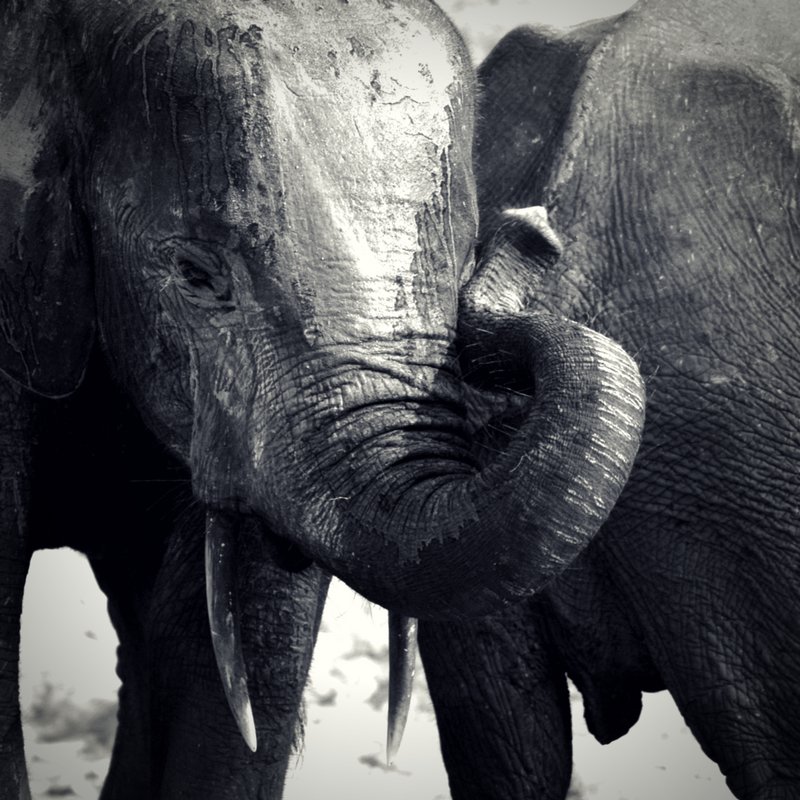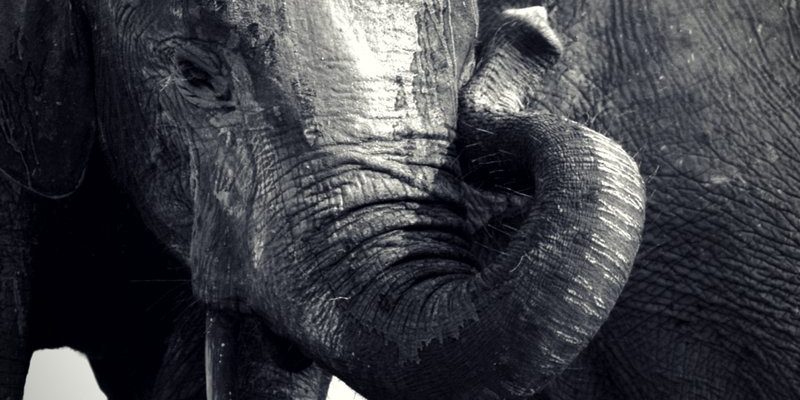
Many people see elephants as gentle giants, but there’s so much more to them than meets the eye. Just like with any other species, understanding these majestic animals requires digging deeper than the surface. Let’s clear up some of the most common myths and misconceptions about the African elephant, so you can appreciate them even more.
African Elephants Are Just One Species
Here’s the thing: many folks think there’s only one type of African elephant. But, honestly, there are actually two distinct species—the African bush elephant and the African forest elephant. The bush elephant is larger and has bigger ears, while the forest elephant is smaller with straighter tusks.
You might be wondering why this matters. Well, understanding the differences helps us appreciate how these elephants adapt to their environments. The bush elephant roams the savannah and is more social, often found in larger herds. In contrast, the forest elephant thrives in dense jungles, usually found in smaller family groups.
Each species plays a vital role in their ecosystems. For example, bush elephants help maintain the savannah by creating clearings, while forest elephants act as seed dispersers, vital for the health of the forest. So next time you hear about African elephants, remember there’s a world of diversity beyond those iconic images.
Elephants Never Forget
You’ve probably heard that “elephants never forget.” While it sounds catchy, it’s a bit of an exaggeration. Elephants do have incredible memories, but that doesn’t mean they remember everything. Like all animals, their memory is selective.
Here’s the scoop: elephants can recall important information, such as locations of water sources or migration routes. They also remember individual elephants, recognizing their family and friends over long periods. This social bonding is crucial for their survival, particularly in the wild, where relationships can aid in finding food and navigating threats.
However, saying they never forget is misleading. Just like humans and other species, elephants can forget non-essential details. It’s all about the significance of the memory in the context of their lives.
Elephants Are Aggressive by Nature
A lot of people think elephants are aggressive creatures, ready to charge at the slightest provocation. But let’s pause for a moment. Elephants are not inherently aggressive—like any animal, their behavior largely depends on the situation and their experiences.
In the wild, elephants are generally peaceful and prefer to avoid confrontation. They might feel threatened if they’re protecting their young or if they feel cornered. For instance, when a herd encounters a human, they may act defensively, particularly if they perceive a threat.
Understanding this context is crucial. Many conflicts between humans and elephants stem from habitat encroachment and a lack of resources. So, rather than labeling them as aggressive, it’s essential to see them as responding to their environment—a bit like how we might act when we’re feeling cornered.
All Elephants Have Tusks
You might picture every elephant with long, impressive tusks, but that’s not the case. In fact, not all elephants have them. The truth is, some elephants, particularly female African forest elephants, have very small tusks or none at all.
Tusks serve various purposes—like digging for roots, stripping bark from trees, and even as tools for defense. However, the absence of tusks doesn’t make these elephants any less remarkable. It’s simply a variation in nature, influenced by genetics and environmental factors.
With increased poaching, some populations are actually evolving to have fewer tusks. This phenomenon is a testament to nature’s adaptability, even in the face of human pressures.
Elephants Are Not Social Animals
Now, here’s a myth that really takes the cake: the idea that elephants are solitary animals. In reality, elephants are incredibly social creatures. They live in family groups led by a matriarch, often consisting of related females and their young.
This social structure is not just for companionship; it’s key to survival. Family bonds help protect young calves and provide assistance for finding food. Elephants communicate with each other using low-frequency sounds that can travel long distances. This means they can stay connected even when they’re physically apart, which is pretty amazing.
Elephants also display empathy, comfort each other in distress, and can even exhibit mourning behaviors when a member of their herd passes away. Their social lives are rich and complex, similar to our human interactions.
They Use Their Trunks for Everything
While elephants do use their trunks for a lot, it’s a common misconception that they use them for every single task. Their trunks are versatile tools, acting like an arm and hand, but they’re not always the go-to solution for everything.
For instance, an elephant will use its trunk to drink water, but they scoop it up with their mouth. They can also use it to pick up small objects or delicately strip leaves from branches. However, they’ll often use their feet to help knock down trees or create access to food.
So, while trunks are amazing, they’re part of a larger toolkit. Just think of the trunk as the Swiss Army knife of elephants—great for many things, but not the only way they interact with their world.
Closing Thoughts
Understanding the truths behind these common myths and misconceptions about the African elephant can transform how we relate to them. They’re not just enormous animals wandering the African savannah—they’re complex creatures with rich social lives and crucial roles in their ecosystems.
By learning the facts, we can advocate for their protection and create a more harmonious future for both elephants and humans. Next time you think about African elephants, remember the diversity, intelligence, and social bonds that make them such incredible animals!

